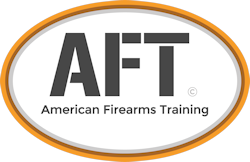Wisconsin Gun Law
The laws governing the legal use, storage and carrying of firearms are constantly changing. Below are the applicable laws in the State of Wisconsin as of 1/21/2013. The below information is designed to be a guide and not the final word. If you have specific questions, please refer to Wisconsin state legislation at wisconsin.gov Another great resource is the Department of Justice and can be found at doj.state.wi.us
CONCEALED CARRY LICENSING
2011 Wisconsin Act 35 created Section 175.60, Wisconsin Statutes, “License to carry a concealedweapon.” The law requires the Department of Justice (DOJ) to issue a license to carry a concealed weapon to any qualified individual who completes the application process. Weapons covered under the law are handguns (pistols), electric weapons (Taser stun guns), knives (other than switchblade
knives), and billy clubs.
Eligibility:
To be eligible for a license, a person must be at least 21 years of age, a Wisconsin resident, not be prohibited from possessing a firearm due to a felony conviction or having been found not guilty of a felony by reason of mental disease or defect, not having been ordered by a court not to possess
a firearm due to mental health issues, not being subject to certain injunctions, not having been prohibited by a court from possessing a firearm as a condition of a bail bond, and
not be prohibited under federal law from possessing a firearm that has been transported in
interstate or foreign commerce.
In Wisconsin, a felon may not possess a firearm unless pardoned by the governor, provided the pardon
does not retain the firearm restriction.
Before DOJ may issue a license, DOJ must subject the applicant to a criminal history background check. A circuit court must notify DOJ of any court proceeding, such as a felony conviction, that makes a person ineligible to hold a concealed carry license.
Training Requirements:
An applicant must provide a certificate or proof of training, which may be met by any of the following:
• The Department of Natural Resources
(DNR) Hunter Safety program or similar qualified course from another jurisdiction.
• Firearms safety or training course taught by a certified or qualified instructor offered by a national or state organization, by a law enforcement agency, or by a technical college or other post-secondary educational institution, a firearms training school, or any other qualified instructor.
• Documentation that a person completed military, law enforcement, or security training that gave the person experience with firearms; or documentation of completion of military small arms
training as demonstrated by an honorable discharge or general discharge under honorable conditions or a certificate of completion of basic training with a service record of successful completion of small arms training and certification.
• A current or expired license (or a photocopy) that the person holds or has held that indicates theperson is licensed or has been licensed to carry a firearm in Wisconsin or in another state or in a county or municipality of Wisconsin or another state, unless the license has been revoked for cause.
Application Form, Cost, and Process:
The application form may require the applicant to provide only his or her name, address, date of birth, driver’s license or state identification card number, and a physical description (including race, sex, height, and eye color).
The completed application form and proof of training is submitted to DOJ, along with a $50 payment, which consists of an license fee which may not exceed $37, and a $13 criminal record background check fee. The applicant must also sign a statement that the information and documentation provided is true and complete to the best of the applicant’s knowledge. DOJ has 21 days after receiving the application to conduct the criminal history record search and either issue the license or reject the application. The license card or document may not contain the licensee’s Social Security number and must be as tamper proof as a driver’s license.If the application is disapproved, DOJ must state the reason and factual basis for the denial, which may be appealed in circuit court. A newly issued or renewed license is valid for five years, and at least 90 days before the expiration of the license, DOJ must mail a notice along with a renewal form. The cost of renewing a license may not exceed $12, plus $13 for another background check. Licensees must inform DOJ within 30 days of a change of address. Failure to do so may result in a warning for a first offense and a $50 forfeiture for a subsequent offense. Replacing a lost, destroyed, or otherwise unusable license costs $12.

